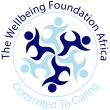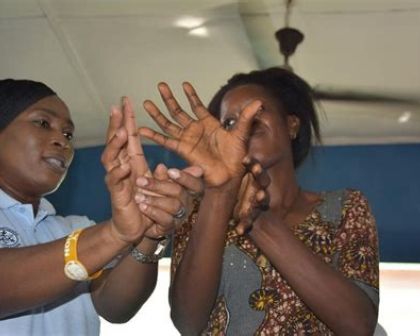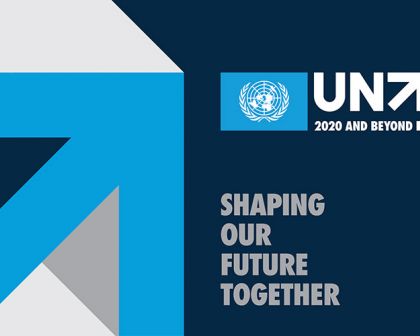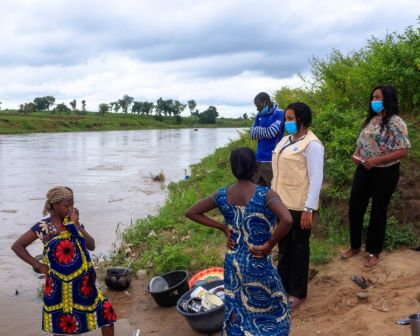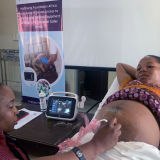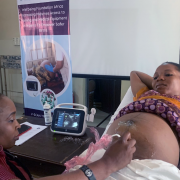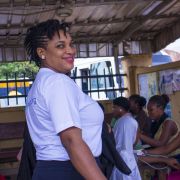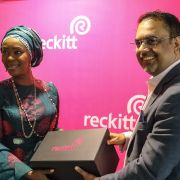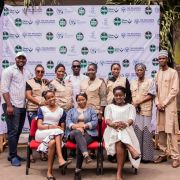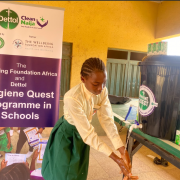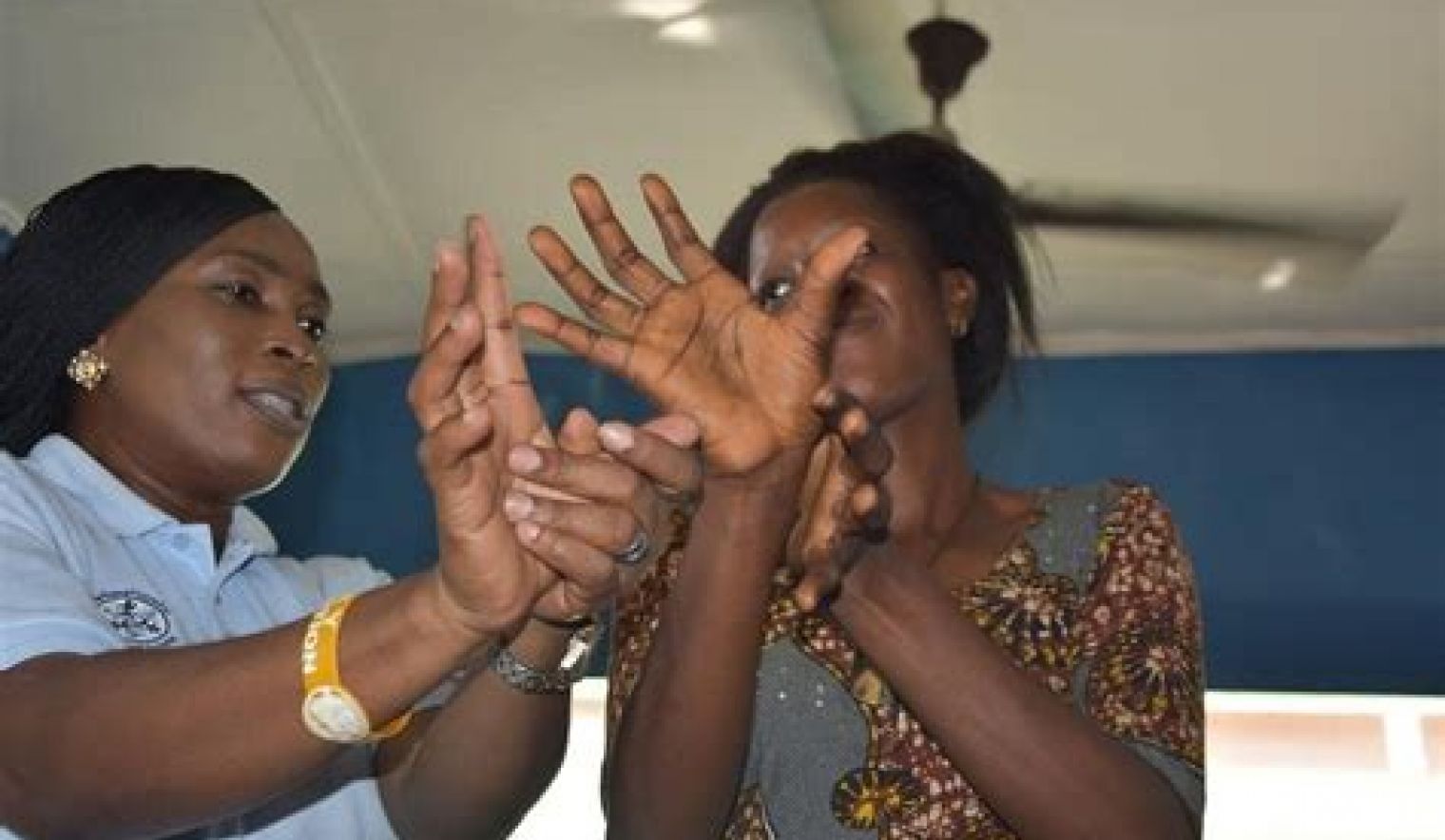
GLOBAL HANDWASHING DAY: HAND HYGIENE FOR EVERYONE
“Wash hands with soap and water…”, these words have resounded many times as the COVID-19 pandemic rages on, that it has almost become thankfully commonplace. In the face of a virulent virus with such a high transmission rate, many saw the need to practice handwashing, highlighting the improving approach that is growing towards issues of hygiene. The Wellbeing Foundation Africa did not wait for a pandemic before we developed a community of handwashing best practice to protect households, health facilities and schools from ubiquitous microbes in our environments. The question we ask the world is this, are you going to wave this practice goodbye after the pandemic and revert to the status quo?
Our hands are always in contact with different surfaces, many use these same hands to feed, touch their faces, mouth, etc. without proper washing. A study found out that people touch their faces an average of 23 times an hour, we put ourselves at risk when we use such hands laden with micro organisms without thorough washing. Handwashing is not only a simple way to prevent the spread of germs, but it is also inexpensive, and the 5 steps of proper handwashing are such that areas that are not normally reached through the haphazard method commonly practiced by many are washed thoroughly.
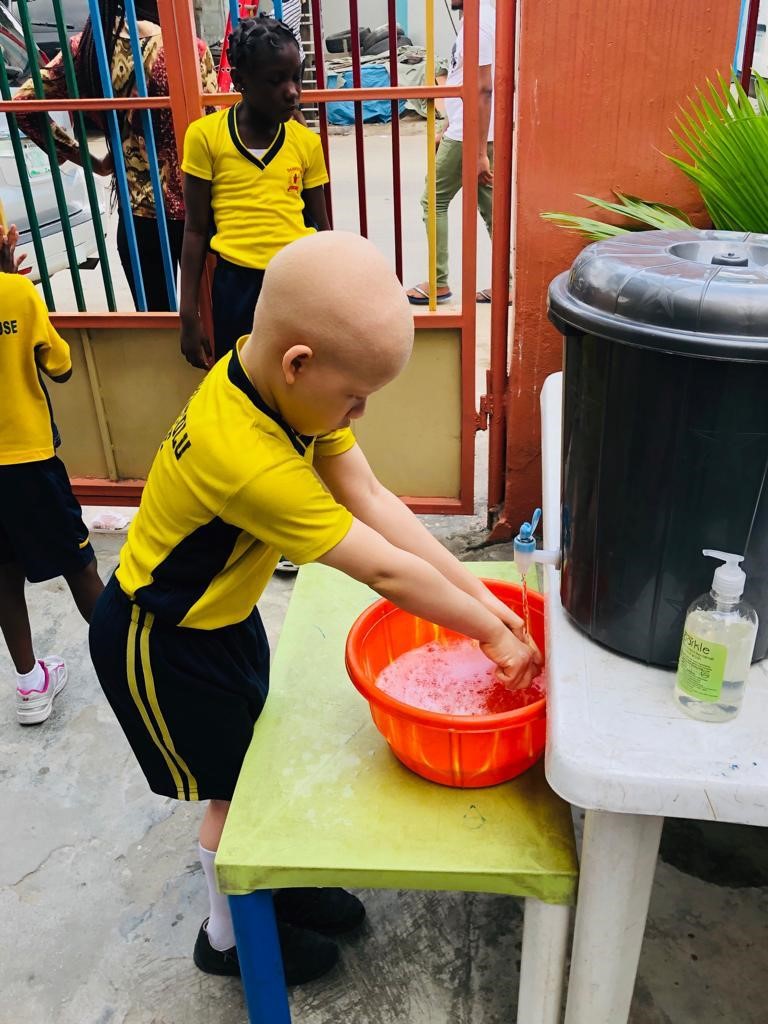
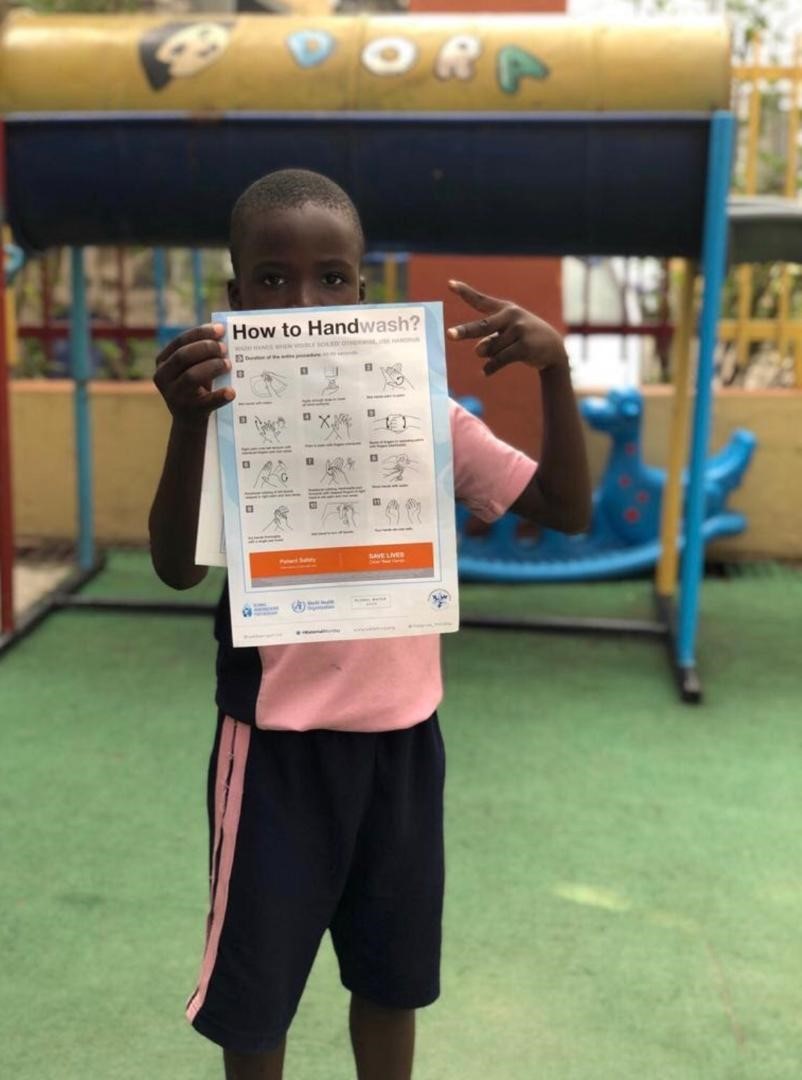
According to the Center fo Disease Control, CDC, educating a community on handwashing can reduce sickness due to diarrhoea by 23 – 40 percent, reduce absenteeism among school children due to gastrointestinal illness by 29 – 57 percent, reduce respiratory illness like colds by about 16-12 percent among the general population.
The Global Handwashing Day, GHD-2020 theme: “Hand Hygiene for All” celebrated since 2007 draws commitments from all stakeholders. Government, donors, institutions, businesses, researchers and advocates must be united in reinforcing and replenishing our commitments to achieve this ambitious target.
Since 2004, the Wellbeing Foundation Africa (WBFA) has embedded Water, Sanitation and Hygiene (WASH) across all its programmes and advocacy efforts. From enlightening adolescents in schools or at home through its Adolescent Personal Social Health Eeducation (PSHE) WASH and the extension: Community-Based Adolescent PSHE WASH programme, on why he/she should handwash, to educating mothers through its Mamacare360 programme on why she should wash her hands before breastfeeding the baby, after using the toilet, after returning from public places like market, etc.
In May 2018, the President-Founder of WBFA, H.E Mrs Toyin Ojora-Saraki launched a global WASH campaign in Abuja. WBFA worked with several global and local partners including the WHO and Global Water 2020 to ensure access to water and the availability of WASH in Healthcare centres in Nigeria. In September of the same year, WBFA partnered with Unilever Lifebuoy and Sightsavers to impact more than 2 million children, with a focus on promoting hygiene messages and preventing diseases. Hygiene interventions such as washing with soap were at the centre of the campaign to address the issue of child illness and mortality resulting from preventable diseases. Over 2,600 children across Kwara, Lagos and Abuja benefited from this partnership, and were equipped with WHO standard handwashing skills, and provided with hygiene promotion products to prevent contracting diseases easily transmitted through unwashed hands. According to a UNICEF report, only 26.5 percent of the population use improved drinking water sources and sanitation facilities, and this is a major contribution to increase vulnerability to water-borne diseases, including diarrhoea which leads to more than 70,000 under five deaths annually. Advocacy efforts and interventions like this are vital to saving millions of lives and promoting proper hygiene culture.
In this year’s awareness campaign, we join Unilever Lifebouy to amplify the #HforHandwshing movement, and ensure handwashing gets the attention it deserves in this pandemic and beyond. This is a multi-year campaign to accelerate behavioral change on handwashing, and transform the letter H into a symbol for Handwashing. Children right from kindergarten have known H to stand for words like Hat, Horse, etc., we see this as a golden opportunity to forever change what Letter H stands for. We want to hear the child in school as he sings the ABC phonics song say: “A for Apple, B for Ball, C for Cat…………..G for Garden, H for Handwashing”.
Beyond teaching phonics, we are teaching the child a lifesaving habit that will remain with him/her for life, and this can be passed on from one generation to another. To accomplish this, we call on all educators: teachers, parents, caregivers, siblings, grandparents and everyone who interphases with children. We can make this year’s campaign a memorable one, and years to come we will look back to see that what we achieved went beyond adopting a symbol for handwashing, but a movement that drastically reduced child mortality due to preventable diseases.
The role of the government and donor agencies in achieving this is invaluable, to walk the talk, we must provide the resources that will ensure we meet this target. We need to put our hands deeper into our pockets to ensure WASH services get the needed funding to expand reach. The world bank estimated that Nigeria needs about 1.7 percent of its GDP or about US$8 billion yearly as of 2015 to achieve SDGs by 2030. Between 2006 and 2010, the Federal Government of Nigeria (FGN) and states invested close to US$1 billion yearly, which is around 0.42 percent of GDP.
Advocating for “Hand hygiene for All” means access to WASH services. According to a national survey by the – World Bank, only 30 percent of poor Nigerians have access to an improved source of water, yet the richest 20 percent of households have more than 90 percent access to improved water and sanitation. The socioeconomic impact of poor sanitation alone cost Nigeria about US$2 billion every year according to the Water and Sanitation Program of the World Bank.
Every hand must be at the tap and basin to invest in handwashing and close implementation gaps: we welcome and support the Federal Government of Nigeria’s Teach Clean Initiative as a timely collaborative platform to integrate private sector activation, and target increased budgetary allocation to WASH services. It is not enough to say we align with global SDGs or targeted developmental indices; we must ensure we put our money where our mouth is to achieve Hand Hygiene For All.
Share this Article
